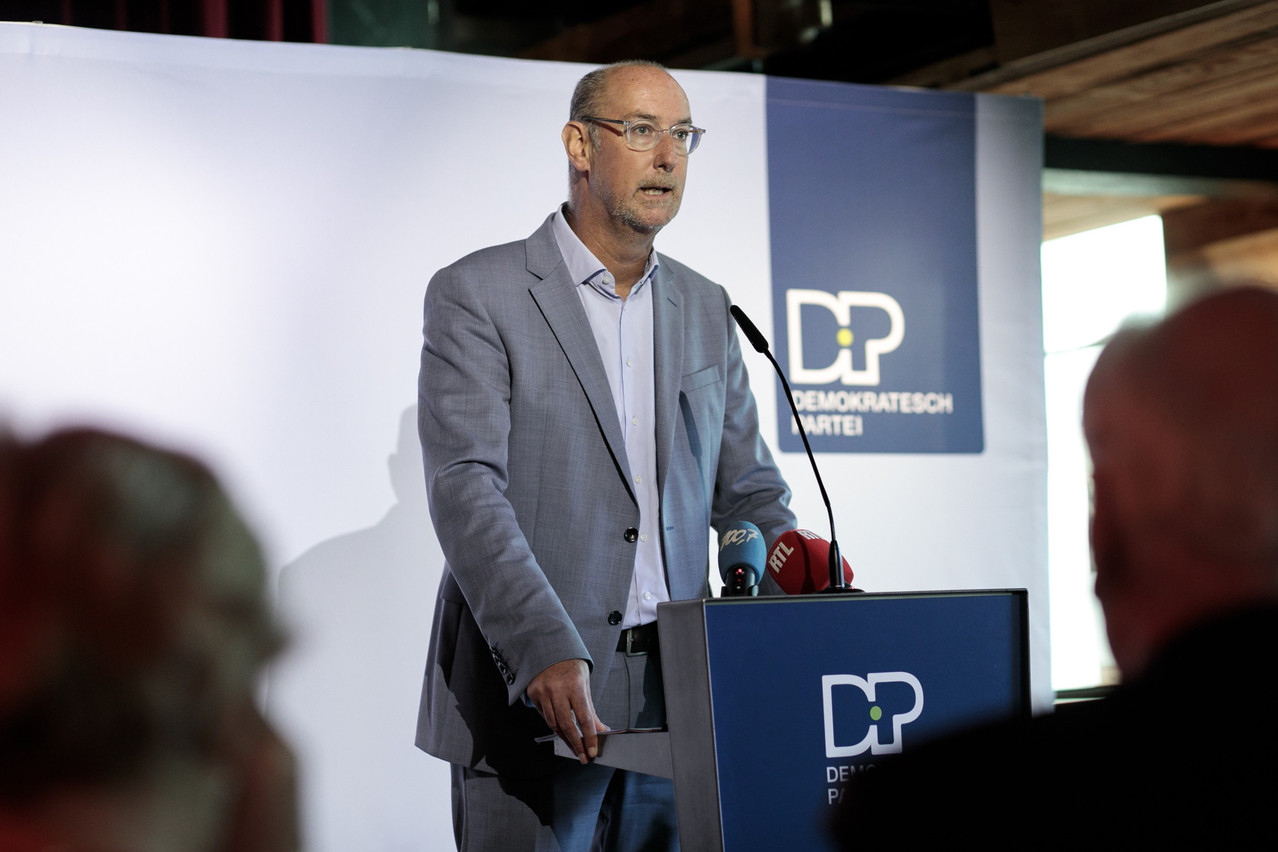Pierre Pailler: Your work has no doubt been affected by the pandemic and the containment measures. How have you had to adapt?
Gilles Baum: It changed a lot: we were teleworking from one day to the next. We discovered Zoom, Webex and Teams, like everyone else. It works well. But it isn’t the same atmosphere if you can’t talk to someone face-to-face, to ask questions to officials or ministers. Face-to-face is better. After the start of the new school year in September, we are going to have a few more in-person meetings.
PP: What major issues had to be put on hold?
GB: The centrepiece should have been the reform of the taxation system, the power to file your tax return individually even when you are in a couple, “pacs”ed or married. In 2019, we had hopes of achieving an ambitious reform of the tax system, we had a list of ideas collected with [coalition partners] the Socialists and the Greens, and we were on the way to a great reform. But then the crisis surprised us.
PP: Did the amount of economic aid granted to deal with the crisis seem proportionate to you?
GB: We had reservations about engaging in measures such as short-time working, cost-of-living allowances and aid to businesses. But at no time did we want people to become unemployed and companies to go bankrupt. That was the most important thing.
The prime minister said at the beginning of the crisis: “It will cost what it will cost.” In fact, it has cost a lot of money. But people are not unemployed, and we haven’t had the predicted wave of bankruptcies. We are doing quite well. And the good situation we had in 2019 meant that we didn’t take this crisis head-on like other countries did.
PP: Do you think the idea of taxing companies that are the “winners” in the crisis, as proposed by employment minister Dan Kersch (LSAP), or more recently by interior and equality minister Taina Bofferding (LSAP), is still relevant today?
GB: That’s just a no-go. Companies in Luxembourg that have done well will be taxed at a fair rate, and if they have made more profits then they will pay more taxes.
What is important is that companies can reinvest their money and hire people. But this is an idea that comes from the LSAP, and it’s only right that the LSAP articulates its own ideas. We are in a coalition, not a merger.
PP: Are you in favour of the international corporate tax rate of 15%, which has just been agreed on?
GB: We are very much in favour of it. Some EU countries are not yet ready to do so. But Luxembourg is in favour. This will not harm our attractiveness; quite the contrary. We can do a lot for tax justice with it.
PP: What will be the big issue between now and the next general election?
GB: The big issue is housing. This week we will vote on the Pacte Logement 2.0 (”Housing Pact 2.0”). In it, for example, if a developer wants to do a real estate project of a certain size, the municipality can ask them to hand over 10% of the land free of charge and, in return, they will be able to build 10% more in volume. In my opinion, this is the only way for the state and the municipalities to have access to land for affordable housing. But even with that, it won’t bring a lull because the demand is enormous. This will dominate the political agenda over the next few years, and it will be a major theme in election campaigns.
PP: Shouldn’t we use fiscal leverage?
GB: We have people who have eligible building land but who don’t want to build on it. At the moment, they are not taxed. So, [Taina] Bofferding wants to reform the property tax. This is a way of using fiscal leverage.
PP: What do you think of the Waringo ?
GB: It did a very good job that has been done, with recommendations that we take very seriously. We can always improve our political work.
But nobody was prepared for this pandemic, neither in Luxembourg nor abroad, for that matter. We’re still learning. This is not the end, it’s a study, it’s the beginning of the history of the whole crisis, because it’s not only retirement homes—it’s the economy, schools, welfare, and so on. Once this crisis is definitively behind us, we will have to do a study that will cover all areas of everyday life.
